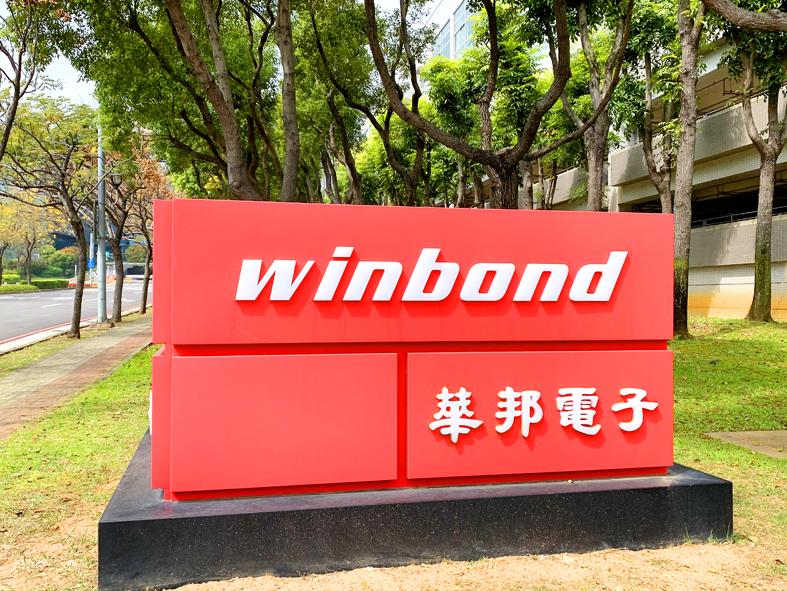Memorychip maker Winbond Electronics Corp (華邦電子) yesterday said it is expanding DDR3 DRAM capacity to satisfy demand, which would help boost the revenue contribution from the segment to 50 percent of overall DRAM revenue in 2024.
DDR3 DRAM sales make up 30 percent of Winbond’s total DRAM revenue, the company said in a statement.
Winbond said DRAM sales made up more than 20 percent of its revenue of NT$20.77 billion (US$710.1 million) in the second half of last year.

Photo: Grace Hung, Taipei Times
Winbond has been in the DDR3 DRAM business for 10 years and aims to ensure a stable supply to its customers amid a supply crunch.
South Korea’s Samsung Electronics Co and SK Hynix Inc are exiting the sector, while new supply from Taiwan and China cannot catch up with demand in the short term.
Prices of DDR3 DRAM chips are to be flat or rise about 5 percent this quarter, market researcher TrendForce Corp (集邦科技) said.
A new fab in Kaohsiung is expected to produce 10,000 12-inch wafers a month in the fourth quarter of this year, Winbond said.
To cope with demand, Winbond plans to start a second-phase capacity expansion by adding 10,000 wafers a month at the fab, it said.
In February, the company’s board of directors approved an additional investment of NT$28.99 billion to fund the capacity expansion.
This year, Winbond has budgeted NT$45.8 billion for capital expenditure, surging from NT$9.4 billion last year.

NEW IDENTITY: Known for its software, India has expanded into hardware, with its semiconductor industry growing from US$38bn in 2023 to US$45bn to US$50bn India on Saturday inaugurated its first semiconductor assembly and test facility, a milestone in the government’s push to reduce dependence on foreign chipmakers and stake a claim in a sector dominated by China. Indian Prime Minister Narendra Modi opened US firm Micron Technology Inc’s semiconductor assembly, test and packaging unit in his home state of Gujarat, hailing the “dawn of a new era” for India’s technology ambitions. “When young Indians look back in the future, they will see this decade as the turning point in our tech future,” Modi told the event, which was broadcast on his YouTube channel. The plant would convert

‘SEISMIC SHIFT’: The researcher forecast there would be about 1.1 billion mobile shipments this year, down from 1.26 billion the prior year and erasing years of gains The global smartphone market is expected to contract 12.9 percent this year due to the unprecedented memorychip shortage, marking “a crisis like no other,” researcher International Data Corp (IDC) said. The new forecast, a dramatic revision down from earlier estimates, gives the latest accounting of the ongoing memory crunch that is affecting every corner of the electronics industry. The demand for advanced memory to power artificial intelligence (AI) tasks has drained global supply until well into next year and jeopardizes the business model of many smartphone makers. IDC forecast about 1.1 billion mobile shipments this year, down from 1.26 billion the prior

People stand in a Pokemon store in Tokyo on Thursday. One of the world highest-grossing franchises is celebrated its 30th anniversary yesterday.

Zimbabwe’s ban on raw lithium exports is forcing Chinese miners to rethink their strategy, speeding up plans to process the metal locally instead of shipping it to China’s vast rechargeable battery industry. The country is Africa’s largest lithium producer and has one of the world’s largest reserves, according to the US Geological Survey (USGS). Zimbabwe already banned the export of lithium ore in 2022 and last year announced it would halt exports of lithium concentrates from January next year. However, on Wednesday it imposed the ban with immediate effect, leaving unclear what the lithium mining sector would do in the